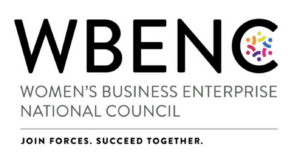
As a thirteen year old, I pursued learning to swim competitively. I tried out for the swim team and I stood up in the middle of the pool, disqualified myself, and didn’t make the team.
However, I wanted to make the team. I asked how I could do that. And, I was told to show up to the stroke clinic each Friday evening. So I did.
It was painful. I had to work every Friday night. The pool was cold. The trial and error of learning the strokes was tedious. I messed up a lot. I was yelled at. I cried.
I learned. I succeeded. I thought that was the way I had to do things to excel and to be exceptional. Pain is 100% a part of exceptional learning processes.
And, all of these years later, my recollection of this story makes me think.
Does learning have to be painful?
Nowadays, I work with at least a hundred kids a year and more than that through my team. Often, I am uncovering and addressing learning pain.
Kids are being told they are bad at math. They struggle. They cry. They get F’s, D’s and C’s. They feel overwhelmed and unsuccessful. This is a popular scenario.
Students are bored. They can write more and do more, but they endure the bare minimum. They get As with aplomb but never tap into their learning potential. They die a little inside with under-stimulation. I see this happening a bunch of times.
Kids do well in school. They hold in their pain and then behind the scenes they feel overwhelmed, anxious, scared to acknowledge the pain they are in. They hide their experience from the school, their teachers, their parents even.
A student with dyslexia struggles to read. He does his best to compensate and to the outside world he is making progress. But, every time he reads it is painful.
A student wants to get As and he works for hours and hours on that pursuit. Isolation, elimination of joyful activities, and anxiety and worry are all a part of this pursuit. It’s painful. When he asks the school to help, they tell him to stop pursuing the As. He doesn’t. He lives in pain.
A student has to change schools. We talk about their current experience and learn areas that they dislike. They have endured these classes, this teacher, this book, this assessment, but they wish it was different.
I BET you, if you are a parent, a tutor, a teacher, any kind of person who has stepped outside of the learning experience, you may have forgotten about the pain that can be a part of the learning process. And, kids are quite good at covering it up. Maybe it also feels normal. Or, you don’t know another way to do this. Or, you already have a full time job, and dealing with this is honestly just one more thing to add to your already full plate. Hey, I get it.
But, I’m in the solution making business, so here are a few ideas I have for you:
- Acknowledge that pain can be a part of the learning process.
- Be open to the notion that pain is an individual experience. In other words, not everyone will experience pain in every learning experience nor will they experience it in the same way.
- Learners don’t have to experience pain.
- When there is pain, adults can ask about it: “What is this like for you?” “Has it always been this way?” “What if it wasn’t painful?””Is something else going on that is similar that isn’t painful?””Can we apply what is working within what is not?
- Our job is not to eliminate pain entirely, but it is to understand it could be there and to be curious – always!
- Pain provides an important lesson (don’t knock your knee on that bed or your knee won’t work anymore).
- However, in order to learn, we need to have the opportunity to learn the lesson, and this brings us back to #1.
Learning pain is the hurt that comes along with the learning process. It is not a bad thing to have it, but I do subscribe to the notion that it deserves to be acknowledged and considered. Pain does not have to be part of the learning process. We can decide to move forward differently.
Sometimes, that means we think about the work differently.
Other times, we learn new skills.
We might talk about it and find a solution in something that is working.
We might change schools.
We might change habits or establish new routines.
But, the best, best, best, solutions come from the student themselves.
They get to decide – and this is what we get to explore!
Want to do a deeper dive with your student? Email us: info@evolveded.com.


